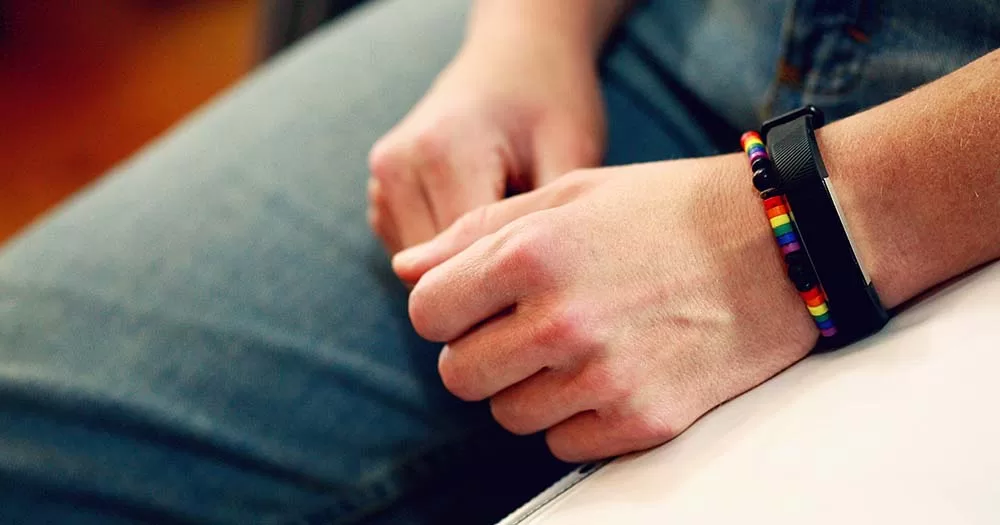A lot of well-meaning heterosexual and cisgender people claim to be LGBTQ+ allies, but realistically, many of them are only doing the bare minimum to advance queer liberation.
During the late 1990s, student-led groups like the Gay Straight Alliance began using the word ally as a way for cis-het students to signal their support for the LGBTQ+ community. Today, allyship involves more than simply supporting queer rights or not actively discriminating or causing harm.
Actively practising allyship involves listening to LGBTQ+ voices, amplifying queer issues, advocating for change, and demonstrating support through action.
Here are some tips for well-meaning friends and family who want to be better allies.
View this post on Instagram
Learn about LGBTQ+ history
Before someone can begin to understand the pain and oppression the queer community has endured, it’s important to learn about the history of persecution and loss of rights.
A good place to start learning about LGBTQ+ history is the Stonewall Riots. After years of police brutality and discrimination against New York City’s gay bars, police raided the Stonewall Inn in 1969. This led to a massive LGBTQ+ revolt led by Marsha P. Johnson, a black trans woman who changed history.
More locally, Ireland also has a rich LGBTQ+ history to learn about, including key moments like the first demonstration for Homosexual Law Reform in 1974, the murder of Declan Flynn which led to the Fairview March in 1983, and the decriminalisation of homosexuality in 1993. GCN has a multitude of historical articles to peruse, and the GCN Archive provides digital access to the first 10 years of the magazine.
Learning about queer history will help allies better understand what rights we’ve had to fight for historically and what LGBTQ+ people continue to face today.
Educate yourself about LGBTQ+ terms and issues
Allies should work to learn and understand basic LGBTQ+ terminology. Resources like this from Irish LGBTQ+ organisation ShoutOut and this series by the Human Rights Campaign offer some great information to begin with.
Sometimes, well-intended allies get it wrong. It’s okay to ask questions, but make sure they are appropriate and not overly intrusive. Always respect the other people’s boundaries – just because you have a gay friend who is comfortable answering personal questions doesn’t mean all queer people will feel the same way.
Diversify your knowledge
While you may think you have a good understanding of what it’s like to be a cisgender gay man, it doesn’t mean you have a broad understanding of LGBTQ+ lives. The lived experiences of LGBTQ+ people, especially queer folks of colour, are often underrepresented.
Remember that queer identities can intersect with other marginalised identities including race, class, age, and immigration status. Read books, listen to podcasts, and listen to their stories so you can use your privilege to support them.
View this post on Instagram
Understand the difference between performative activism and allyship
Being an ally means proactively offering support even when it feels inconvenient. Donate to LGBTQ+ charities, join protests, and sign petitions without being asked to do so. Be visible in your support whenever you can. Wearing accessories that indicate your allyship can help LGBTQ+ people feel safe in your presence.
Too often, companies claim to care about LGBTQ+ rights for Pride month but prove to be more concerned about protecting their profits than actually supporting queer people. You can also offer tangible support by supporting queer-owned businesses and boycotting companies that negatively impact the LGBTQ+ community.
Stand up to homophobia, biphobia and transphobia
Part of being a good ally means encouraging your friends and family to be better allies and standing up to homophobia, biphobia and transphobia wherever you see it, even when only cis-het people are present. Sometimes, this means standing up to the people you love when they are wrong.
When someone uses a harmful or derogatory term, call them out. It may be uncomfortable, but doing so helps bring awareness and visibility to the LGBTQ+ community.
Be open to feedback
It’s never easy to be called out, but a good ally strives to learn from the LGBTQ+ community. This means being open to feedback and being flexible and willing to update your own thinking and perspectives.
The best way to be a good ally is to be a good friend. Be reliable. Be empathetic. Be trustworthy. Demonstrate love, respect and support toward the queer people in your community. And don’t assume you know what’s best.
Allyship doesn’t mean celebrating yourself for your contributions. Instead, it means asking questions and learning how to best use your power and privilege to amplify marginalised voices.
© 2024 GCN (Gay Community News). All rights reserved.
Support GCN
GCN is a free, vital resource for Ireland’s LGBTQ+ community since 1988.
GCN is a trading name of National LGBT Federation CLG, a registered charity - Charity Number: 20034580.
GCN relies on the generous support of the community and allies to sustain the crucial work that we do. Producing GCN is costly, and, in an industry which has been hugely impacted by rising costs, we need your support to help sustain and grow this vital resource.
Supporting GCN for as little as €1.99 per month will help us continue our work as Ireland’s free, independent LGBTQ+ media.

comments. Please sign in to comment.